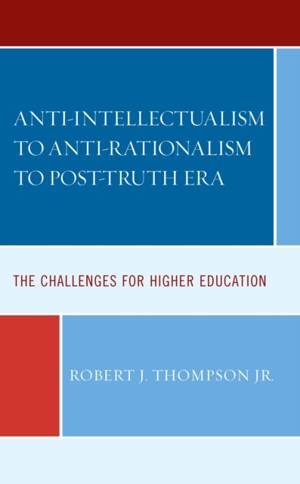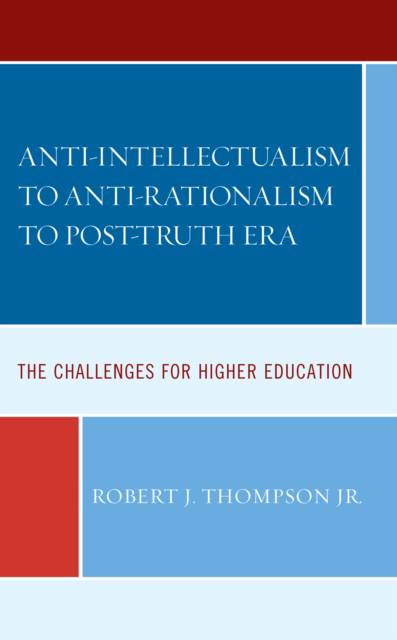
- Afhalen na 1 uur in een winkel met voorraad
- Gratis thuislevering in België vanaf € 30
- Ruim aanbod met 7 miljoen producten
- Afhalen na 1 uur in een winkel met voorraad
- Gratis thuislevering in België vanaf € 30
- Ruim aanbod met 7 miljoen producten
Zoeken
Anti-intellectualism to Anti-rationalism to Post-truth Era
The Challenges for Higher Education
Robert J Thompson
Hardcover | Engels
€ 232,45
+ 464 punten
Omschrijving
The post-truth world threatens our collective commitment to rationality but must not become the norm. Synthesis of the scholarship on anti-intellectualism and personal attributes informs educational practices to promote development of student's rational mind-set and rationalist identity necessary to combat anti-rationalism and the post-truth world.
Specificaties
Betrokkenen
- Auteur(s):
- Uitgeverij:
Inhoud
- Aantal bladzijden:
- 336
- Taal:
- Engels
Eigenschappen
- Productcode (EAN):
- 9781793653321
- Verschijningsdatum:
- 14/02/2022
- Uitvoering:
- Hardcover
- Formaat:
- Genaaid
- Afmetingen:
- 152 mm x 229 mm
- Gewicht:
- 662 g

Alleen bij Standaard Boekhandel
+ 464 punten op je klantenkaart van Standaard Boekhandel
Beoordelingen
We publiceren alleen reviews die voldoen aan de voorwaarden voor reviews. Bekijk onze voorwaarden voor reviews.







